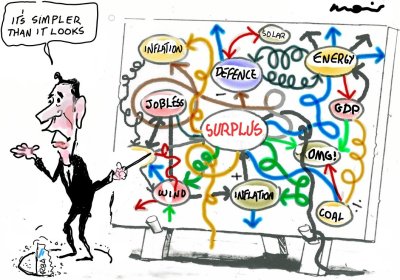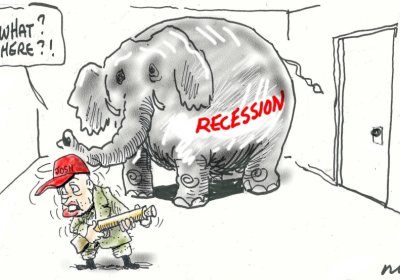It is not enough to “punish Labor” in coming elections. The real challenge is to build a political alternative that will act for the majority, not slavishly serve the billionaire class, argue Sue Bull, Jacob Andrewartha and Sam Wainwright.
Reserve Bank of Australia (RBA)
Capitalism has long ceased to provide for the majority, yet its institutions — government, the RBA and the corporate media — continue to try to tell us that there is no alternative. Graham Matthews argues that solidarity is key.
There are some very straight-forward solutions to ease the sustained cost-of-living crisis, as Peter Boyle outlines. But they require a redirection of public funds away from the corporate profits-first agendas of the major parties.
The Reserve Bank of Australia claims it is “fighting inflation” by hiking up interest rates. But, as Zane Alcorn argues, it has never been independent of the capitalist class and is dutifully carrying out its interests.
Matthew Alexander explains why the leadership debate about how to address cost-of-living rises and housing affordability is cynical, at best.
National accounts figures released by the Australian Bureau of Statistics (ABS) on September 4 show economic growth was slower over the 2018–19 financial year than at any time in the past 10 years.
Nearly 100 workers at Note Printing Australia (NPA) in Craigieburn, which is owned by the Reserve Bank of Australia (RBA), were locked out by their employer on August 10.
The workers have been campaigning for a wage rise of 3.5%. Their demand is in line with the appeal made by RBA Governor Philip Lowe to federal parliament in February, when he said that a generalised wage rise of 3.5% would help stimulate economic activity.






